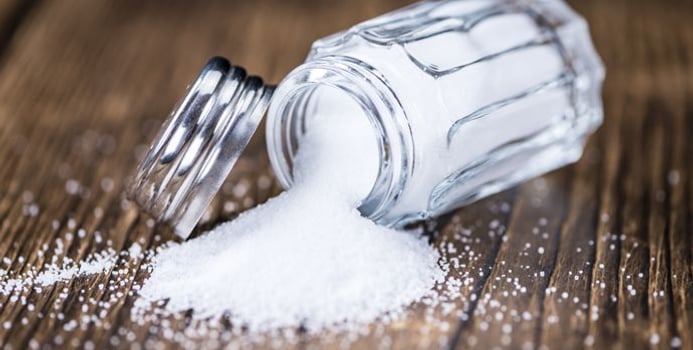Most people know that a diet that’s high in sugar is bad for the health, but while you may be avoiding chocolates and sweets with ease, it’s not always obvious which products are high in sodium.
Natural foods tend to contain less salt, and we consume around 75 percent of our sodium through processed foods, Blood Pressure UK reports. For example, meats like pork, beef, and chicken contain sodium naturally, but when meats are not fresh, or processed, as bacon and ham, the levels of sodium are significantly higher. According to Kidney, one of the ways to tell if a food is packed with sodium is if its able to last for days or even weeks in the fridge.
The same goes for choosing frozen vegetables because unless they are “fresh frozen” they could have added sodium or sauces, and of course, if you’re unsure about anything it’s best to check the nutritional labels of foodstuffs.
But what exactly does excessive sodium consumption do to your health? Americans reportedly tend to consume 50 percent more than the daily recommendation of sodium in their diets, and this can lead to kidney complications, including kidney failure, which is caused by high blood pressure. And high blood pressure can also make an individual more at risk for strokes or heart disease.
It’s not just blood pressure that can be affected but also bone density. According to Daily Mail, a high salt intake can lead to excretion of calcium, which can, in turn, cause weaker bones and potentially cause osteoporosis.
Asthma has also been found to be worsened by table salt, and Daily Mail notes that a study at a Leicester hospital found that asthmatic males symptoms were worsened by the ingestion of sodium supplement.
In addition to the above-mentioned reasons, if you cut down on your sodium intake you could reduce bloating, caused by water retention, and less sodium helps to maintain good heart health. Fitness Republic notes that according to the Center for Diseases Control and Prevention, 10 percent of cardiovascular disease is actually caused by high sodium intake.
[Image via Shutterstock]



